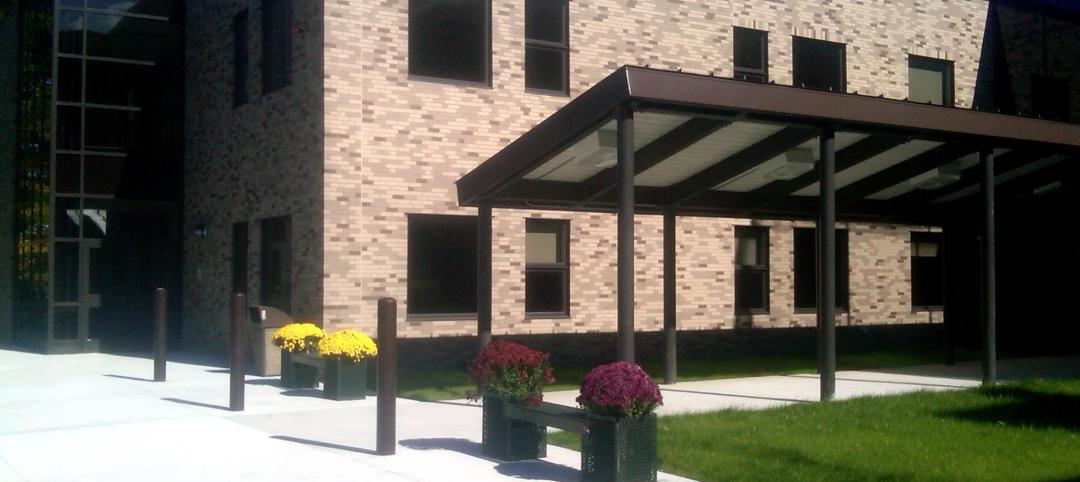The Frank Lloyd Wright Foundation announced today that, at its Dec. 5 Board meeting, it approved a possible path towards independent incorporation of the Frank Lloyd Wright School of Architecture. The Foundation Board’s decision has been embraced and approved by the School of Architecture Board of Governors and representatives of alumni and the broader school community.
In order to meet critical fundraising goals that will allow it to achieve the financial autonomy necessary to become an independent organization, the Frank Lloyd Wright School of Architecture is immediately launching the Campaign for Independence – to raise $2 million before the end of 2015.
Providing one of the most notable educational experiences in the country, the School’s professional M.Arch degree program offers graduate students hands-on, design-intensive studio experiences within the immersive educational communities of Taliesin West (Scottsdale, Arizona) and Taliesin (Spring Green, Wisconsin). This past year saw the highest number of new students in the School’s history, 100% student retention for the third consecutive year, and the launch a “Teaching Fellowship” program that has added five distinguished international architectural educators and practitioners to the School’s teaching ranks.
Despite its recent successes, as was previously reported, accreditation for the School is threatened because the Higher Learning Commission (HLC) changed its by-laws, resulting in an expectation that the Foundation retain ultimate financial responsibility for the School while simultaneously ceding governance, financial, and operational control to a separate, autonomous organization. After two years of exploration and debate, the Foundation Board concluded that it could not agree to guarantee funding to an autonomous School to the level it would need to thrive without retaining ultimate control or decision-making authority, particularly given its responsibility to find funding for tens of millions of dollars (at least) in critically needed preservation work in the coming years and for the other critical components of the Foundation’s mission.
Following that determination, longtime supporters of the School suggested the possibility of raising substantial funds to create and support an independent School. The Foundation Board readily agreed that, if the School community can raise funds sufficient to demonstrate that the new organization would have “its own financial resources” (as explicitly required by the HLC’s by-laws) then spinning off the School would not present the same obstacles. The new, independent school organization would take ultimate fiduciary responsibility for itself.
As part of the new structure, the Foundation would donate over $1 million in facilities-related cash expenses every year, related to the School’s extensive use of Taliesin West and Taliesin as its campuses (at no cost to the School). The Foundation would also contribute an additional subsidy of $580,000 to the School in 2015, with decreasing levels of such additional transitional support over the next five years (but always continuing to cover 100% of annual facility-related expenses of well over $1 million).
“If the School community can successfully raise this $2 million,” said Jeffrey Grip, Chair of the Foundation Board of Trustees the Foundation, “the Foundation will proudly and enthusiastically commit to independently raising funds to match that giving 3.5 to 1, with support of more than $7 million over the next five years.”
In order to achieve the desired independence and continue as a stand-alone School of Architecture, gifts and pledges for an initial $1 million in contributions must be received by March 27, 2015 – and gifts/pledges for a second million must be received by Dec. 31, 2015.
“There is an exceptionally bright future possible for the Frank Lloyd Wright School of Architecture,” said Maura Grogan, Chair of the School’s Board of Governors. “But that future is only possible with the generous support of donors, right now. Without significant and immediate support, there will no longer be a stand-alone accredited Frank Lloyd Wright School of Architecture. This campaign is the only opportunity to save the Frank Lloyd Wright School of Architecture as we know it – and to ensure its success and impact for decades to come. I urge people to join us in this critical endeavor.”
Related Stories
| Nov 29, 2011
Turner Construction establishes partnership with Clark Builders
Partnership advances growth in the Canadian marketplace.
| Nov 29, 2011
AIA launches stalled projects database
To populate this database with both stalled projects and investors interested in financing them, the AIA in the last week initiated a communications campaign to solicit information about stalled projects around the country from its members and allied professionals.
| Nov 28, 2011
Leo A Daly and McCarthy Building complete Casino Del Sol expansion in Tucson, Ariz.
Firms partner with Pascua Yaqui Tribe to bring new $130 million Hotel, Spa & Convention Center to the Tucson, Ariz., community.
| Nov 28, 2011
Armstrong acquires Simplex Ceilings
Simplex will become part of the Armstrong Building Products division.
| Nov 28, 2011
Nauset Construction completes addition for Franciscan Hospital for Children
The $6.5 million fast-track, urban design-build projectwas completed in just over 16 months in a highly sensitive, occupied and operational medical environment.
| Nov 23, 2011
Lord, Aeck & Sargent opens fourth U.S. office, acquiring architecture firm in Austin, Texas
Strategic move offers growth opportunity and strengthens the firm’s historic preservation portfolio.
| Nov 23, 2011
Griffin Electric completes Gwinnett Tech project
Accommodating up to 3,000 students annually beginning this fall, the 78,000-sf, three-story facility consists of thirteen classrooms and twelve high-tech laboratories, in addition to several lecture halls and faculty offices.
| Nov 22, 2011
Corporate America adopting revolutionary technology
The survey also found that by 2015, the standard of square feet allocated per employee is expected to drop from 200 to estimates ranging from 50 to 100 square feet per person dependent upon the industry sector.
| Nov 22, 2011
Report finds that L.A. lags on solar energy, offers policy solutions
Despite robust training programs, L.A. lacks solar jobs; lost opportunity for workers in high-need communities.
| Nov 22, 2011
Saskatchewan's $1.24 billion carbon-capture project
The government of Saskatchewan has approved construction of the Boundary Dam Integrated Carbon Capture and Storage Demonstration Project.
















